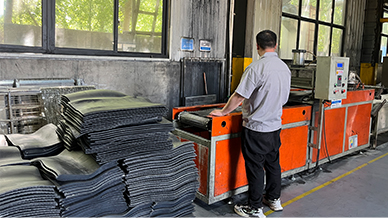Fuel Supply Hose - High-Quality Fuel Transfer Solutions
Sep . 10, 2024 20:08 Back to list
Fuel Supply Hose - High-Quality Fuel Transfer Solutions
Understanding Fuel Supply Hoses Importance and Applications
Fuel supply hoses are critical components in various industries, primarily in automotive and aviation sectors, where the transfer of fuel from storage tanks to engines is essential. These hoses are designed to handle the specific demands of transporting fuels, ensuring safety, efficiency, and longevity.
One of the main functions of fuel supply hoses is to safely deliver different types of fuels, such as gasoline, diesel, and jet fuel, under various pressure conditions. These hoses are constructed from materials that resist chemical degradation and high temperatures. Common materials include rubber compounds, thermoplastics, and synthetic blends, each selected based on the type of fuel they will transport and the environmental conditions they will encounter.
The design and construction of fuel supply hoses incorporate several critical features to enhance their performance
. For instance, the inner lining must be smooth to reduce friction and ensure a consistent flow of fuel. Additionally, braided or spiral reinforcement layers are often included to provide strength and prevent bursting under pressure. Hoses are also manufactured withanti-static properties to minimize the risk of ignition due to static electricity, particularly in applications where flammable fuels are involved.fuel supply hose

Regular maintenance and inspection of fuel supply hoses are vital for operational safety. Over time, wear and tear, exposure to extreme temperatures, and chemical interactions can degrade the materials, leading to leaks or failure. Routine checks for cracks, bulges, or other signs of damage can prevent catastrophic failures and ensure that fuel transfer remains safe and efficient.
In various applications, from fueling stations to aircraft refueling systems, the reliability of fuel supply hoses cannot be overstated. For instance, in the aviation sector, fuel hoses must meet stringent regulations and standards due to the high stakes involved. Any malfunction can lead to dangerous situations during flight operations. Similarly, in the automotive sector, maintaining optimal fuel flow through reliable hoses ensures performance and efficiency, impacting overall engine function.
In conclusion, fuel supply hoses are indispensable for safe and effective fuel transfer. By understanding their importance, features, and maintenance requirements, industries can ensure their operations run smoothly, while also prioritizing safety and compliance with regulations. As technology advances, we can anticipate further innovations in hose materials and designs, further enhancing their capabilities and applications in the future.
